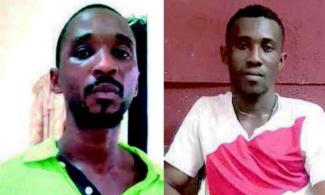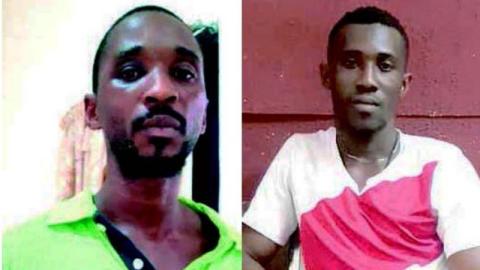
SaharaReporters had reported that the Sekondi High Court, presided over by Justice Richard Agyei Frimpong, sentenced to death two Nigerians, Sam Udeotuk Wills and John Orji, for the kidnapping and murder of four girls.
Amnesty International has strongly disagreed with the death sentence handed to the two Nigerians accused of kidnapping and murdering four Takoradi girls.
SaharaReporters had reported that the Sekondi High Court, presided over by Justice Richard Agyei Frimpong, sentenced to death two Nigerians, Sam Udeotuk Wills and John Orji, for the kidnapping and murder of four girls.

The judgment comes after a seven-member jury found them guilty on all eight counts of the charge of conspiracy to murder and murder.
Justice Agyei Frimpong, who reminded the counsel of the two convicts of their right to appeal within a 30-day window, gave the verdict after close to three hours sitting.
The two convicts kidnapped and murdered Ruth Abakah, 19; Priscilla Blessing Bentum, 21; Ruth Love Quayson,18 and Priscilla Koranchie, 15, between July and December 2018 in one of the most talked-about criminal cases in recent times.
"I'm told hanging has been pronounced on the suspects now inmates of the Takoradi kidnappers.
However, for Amnesty International, our stand has always been a case that the death penalty is not the way to go.
"We know that our judicial system is perfect; there are loopholes in our investigation system, our investigation processes," Ebenezer Kojo Nyavor, campaign coordinator of the organization, Mr Samuel Agbortsey, told Agoo News.
"And so there is evidence to show that people were sentenced to death and some were even killed but later fresh evidence has shown that they weren't the perpetrators.
"Those who were fortunate not to have been killed were acquitted, so it is still our case that the death penalty or killing the people is not the way to go. We can leave them on life imprisonment or a fixed term of the sentence so that in case fresh evidence pops up to say that they're not the ones who killed the girls, then they can be forgiven and cleared," he said.
Samuel Agbortsey added, "The constitution has guaranteed their right to an appeal if they are convinced that they were not the ones who have committed the crime; the law gives them the opportunity to file an appeal for a second look at the case."
When asked if Amnesty international would support them, he said, "Yes, of course, if they come to Amnesty International or they send an SOS to say that they need some assistance to file an appeal, we will make our services and counsels available to them."